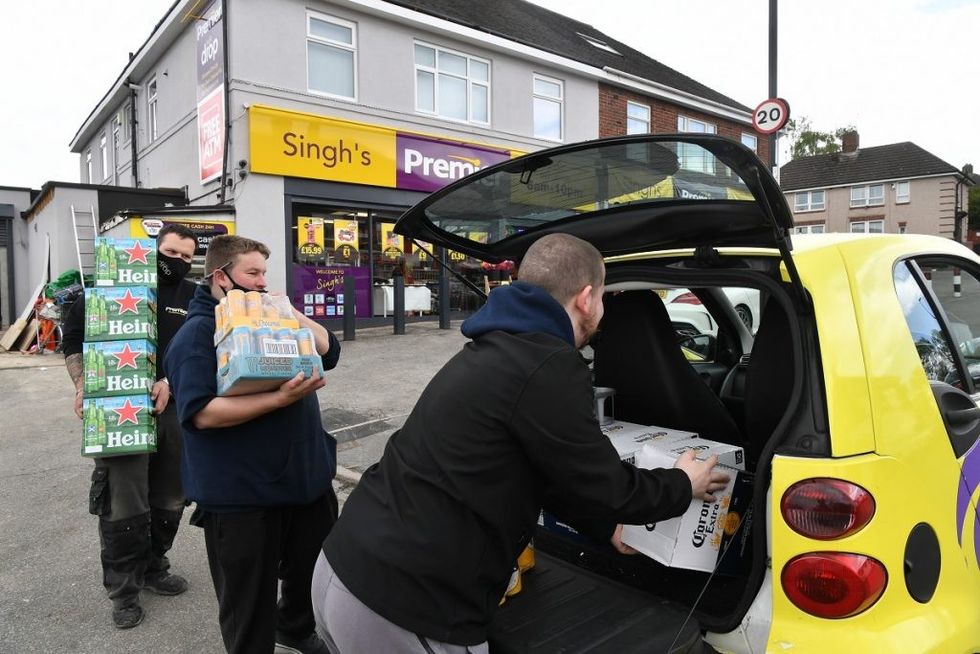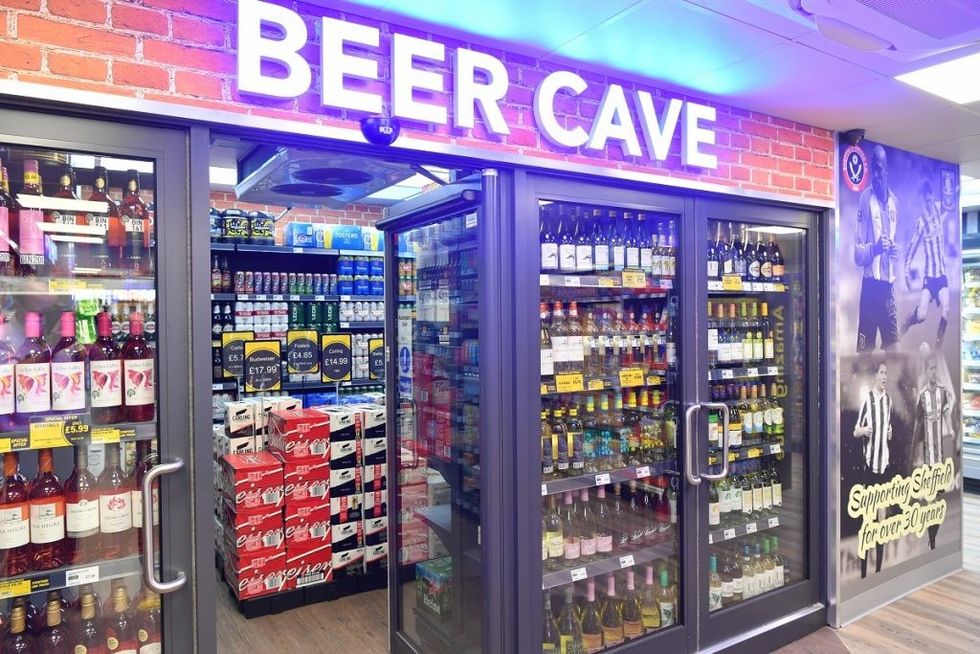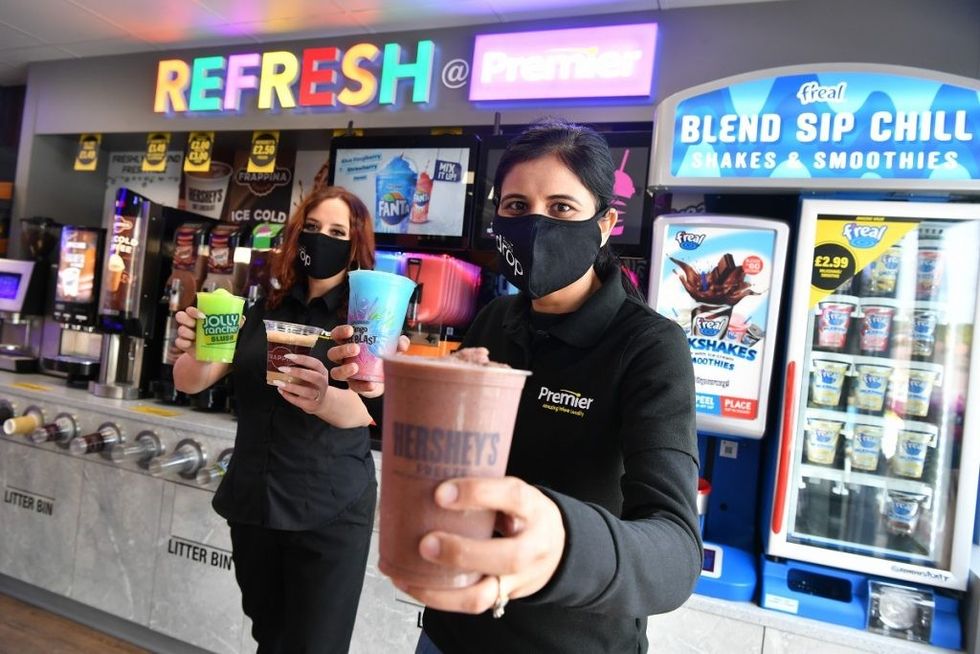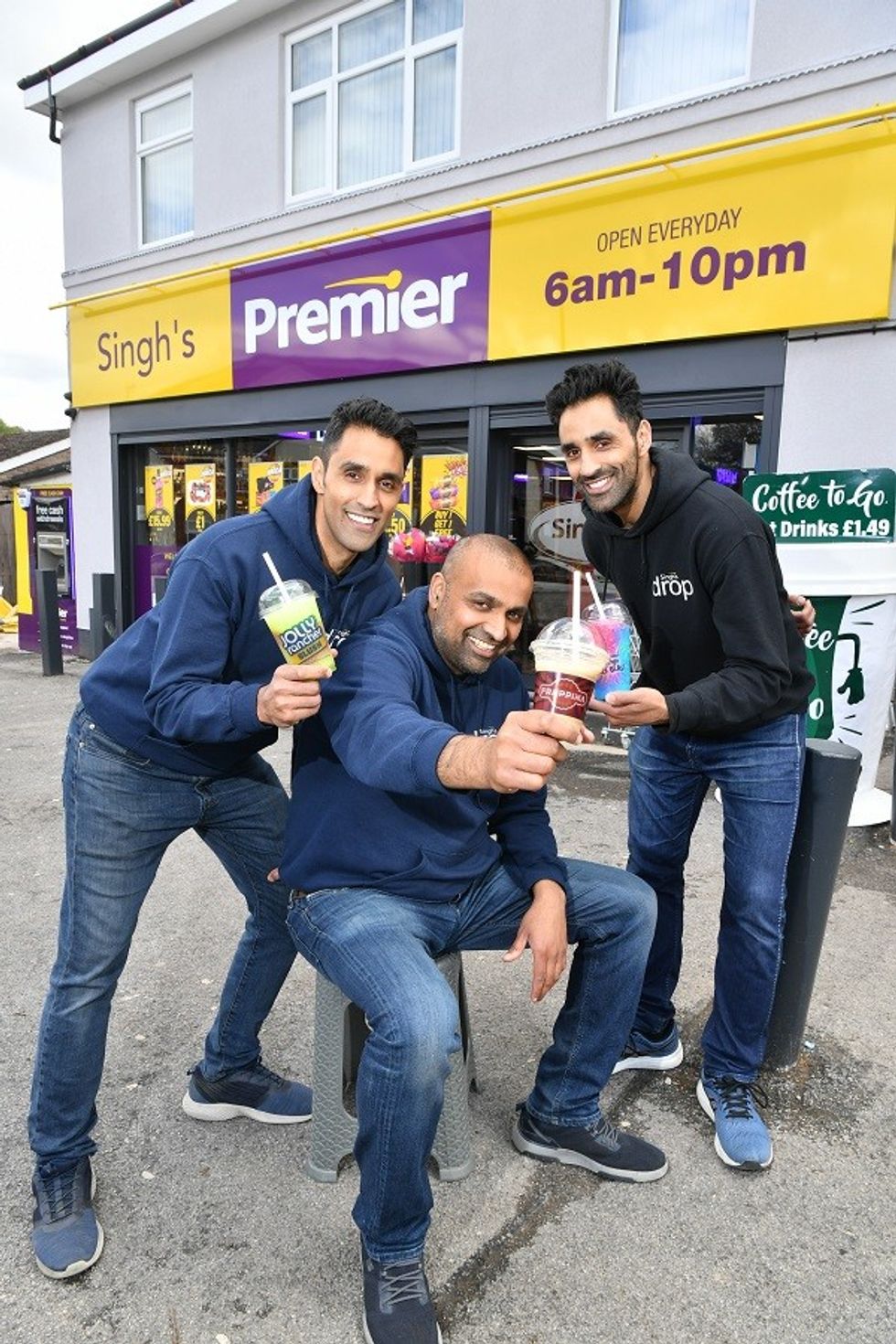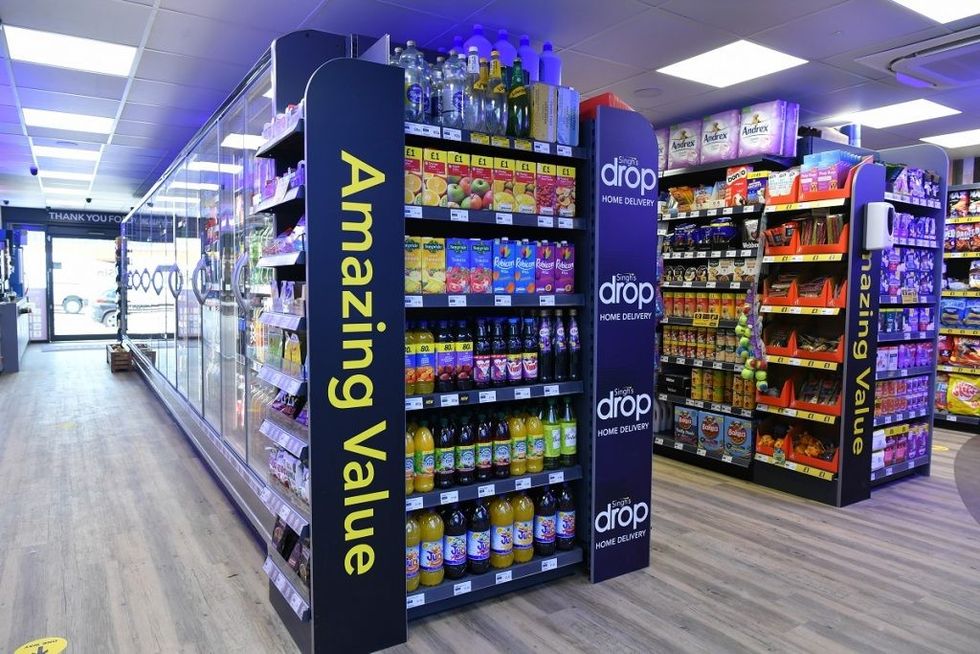“Under-promise and over-deliver”, that’s the mantra of Mandeep Singh, who bagged the top prize at the 2021 Asian Trader Awards, winning the Asian Trader of the Year accolade for his Singh’s Premier store on Teynham Road in Shirecliffe, Sheffield.
As the pandemic dramatically changed the way shoppers use convenience stores, Mandeep quickly grasped the scale of the opportunity and put plans in place to capitalise on this trend with a full-scale refit and extension of the store to 1,750 sq ft.
Mandeep’s store now offers a modern product and service range that gives as many shoppers as many reasons as possible to choose Singh’s first time, every time. A Refresh section with several slush machines, an outstanding walk-in beer cave, a vaping zone and the new food-to-go area, all have created a buzzing atmosphere in the shop, which now also boasts increased chilled & fresh and frozen space and a hugely enhanced home delivery service.
“We looked at not just having a pretty store but what's new, what to stock, what's out there, what do we need to do, and we had a few pillars like we put Refresh in, we put Premier Deli in, we put a beer cave in, we put a dedicated vape station in, we went really big in frozen and chilled and then on top of that, we started delivered business and now our delivered businesses doing short of £1.6 million a year,” Mandeep explains.
You read that right! His delivery business turns over nearly £1.6m, and he has got his own brand and platform, Singh’s Drop. “We are trying to give our customers the Amazon feel. If they want grocery, they come to us, because we're the Amazon of grocery deliveries in our area,” he says. In fact, they are all set to launch Singh’s Drop Prime Day soon!
Mandeep says he cannot see any reason for independent retailers to shy away from a profitable delivery operation, even amidst the challenges from the venture capital-backed rapid delivery startups. In fact, an early pioneer in the sector, he could easily see off the completion from Getir in his area.
“We had Getir come into Sheffield, billions of pounds, and they burn a lot of money. But guess what, they've gone now, Getir is nowhere,” he says.
“So you don't have to waste your energy on about what Getir or Gorillas or whoever are doing. You put that energy into your own business. You got to run a business from zero commissions. You control the margin and the price.”
He gives the example of cigarettes:
“In 34 years of trading, we have never made more than eight per cent on cigarettes. In the last two years, 23 per cent on tobacco delivered. So what I'm saying is, have everything in-house, you control it- your own platform, your own cars, your own drivers. The infrastructure has got to be there,” Mandeep affirms.
The 10-minute, 20-minute promises can be safely ignored, but he would suggest retailers to stick to a 30-minute delivery window. And even if any delivery is late, a local retailer can always pick up the phone, or train their staff to ring the customer, who likely will be more than happy to say, “No problem as long as it takes”, he adds.
“What you are not going to do: over-promise and under-deliver. You have got to under-promise and over-deliver. You have to get that right. That formula is very important.”
Drive and Broaden
Mandeep has a two-pronged approach to running a business: “You have got to drive it and broaden it”, and he notes that delivery is the new way to widen the business.
“Before they need to broaden it by having multiple stores, but now the broadening bit for me is the delivered side of the market: you broaden your business by not having multiple stores but by having multiple delivery destinations,” he says.
“So a leaflet drop, now but delivered with a QR code on, gets me customers every day. If I say to you, I am delivering from one store to 800+ customers a week; you would say that's phenomenal. I'm doing that week after week. So you got to remember: under-promise over-deliver,” he adds.
And, his focus on driving the business is exemplified in the refit of the store, taking it to the next level. In fact, they have been planning on the refit before the pandemic, but hit the pause button as the coronavirus began to spread.
“We were going to do it, but then the pandemic kicked in. I'm glad we didn't do it. Because, we had some crazy, crazy sales! Sales really doubled for us. We had great availability from Booker, which reflected on the sales.”
After the pandemic calmed down, they went for the big investment, and this time the sales ensured that they need not to borrow money.
“Secondly, we've got all these extra customers and to keep this extra custom, we will do something different. And the difference is the pillars that I've talked about – the beer cave, Refresh, the Premier Deli, the delivered foods and all that. So, they all come together like a jigsaw, and now we are reaping the rewards,” he says.
Mandeep stresses that investing in the store is not just about it looking good and fresh, though that is equally important.
“If you are investing money, you have got to put the newness in. Without the newness, I would really say – it's not pointless – but you're not going to see that increase in sales. It’s not just sales, its customer satisfaction as well,” he says.
He suggests retailers to look at the market whenever they go for a refit. “You have got customers, what do they want? Do your customers demand a delivered solution now? Yes, they do. So you have got to be able to provide them with a delivered solution.”
“So its learning from Greggs, its learning from Tesco Clubcard, it is learning from Amazon, many learnings out there that you've got to put together,” he says, welcoming retailers to his store to explore his innovations.
“We welcome any retailer to come to my store. And I will spend one to three hours with him. And I'll show him what we've done. And I'll show him the results,” he says.
Training well
Mandeep emphasises the importance of staff training, particularly when you run a delivery operation, as they are your “face and frontline”.
“They deal with your customers, so even this morning, just as an example, we have got 12-pack Diet Coke on our delivered app. We don’t have 12-pack Diet Coke but we have got six packs. So the staff member calls the customer and said, ‘Look, we haven't got 12-pack but we've got two six packs, and there's no extra cost for you. Are we okay?’ The customer was more than happy,” he says.
Social media is another forte, and his keywords there are consistency and relatability. “Active every day, minimum one if not two, three times a day. Also relate to things that are happening,” he recommends. “It’s about being quick to get that message to your customer.”
Mandeep and his twin brothers, Baljeet and Vrinder who are four years his junior, share the workload, with him posting on Facebook and his brothers replicating it on Instagram, Tik Tok and Twitter.
All three have completed their Honours degree, but belonging to a retail family – their parents started the business and his younger sister has her own Premier store – the pull of retail has been irresistible.
“As we got through our education, our store (on Teynham Road) got stronger and stronger, busier and busier, and it came to a point in my mind that I couldn't earn the money in a job than I could earn out of the store,” he says.
He also notes that a fundamental principle instilled by their parents still drives their business model. “We were bought up in a store where the values were ‘Look after your community, your community will look after you’. We had that moral towards community via our parents,” he says.
“We won the Asian Trader of the Year with this store, which is a big achievement for our family, our friends, our community, our customers. We're honored,” he adds.
The Teynham Road store began as Singh’s Food Store and they first joined the symbol group Happy Shopper, before moving to Premier. Since then, they have stayed with the symbol. They bought their second store in 2004, the year Mandeep’s son was born, in Sheffield's Manor Estate, and in 2008 they bought the Herries Road store.
The stores are all going from strength to strength, but Mandeep says they don’t want to have multiple stores. “We could have probably 20 stores, but 20 stores dilute you and we are here to run good stores and at the same time, yes, we all want to make money,” he says.
‘In a good place’
As Mandeep says, delivery is his route to expansion, and he explains how that side is serving them well amidst the ongoing cost-of-living crisis.
“In these tough times the shopper is savvy. You have a nicely laid out store and you can get the spend up after putting that in place. But at the same time the shopper on your delivery is three times bigger than your shopper in-store,” he reveals.
“My average basket spend is over £8 in-store. But on my delivery, it's over £24, sometimes £27, 99 per cent of them a new business. So there is a massive opportunity for delivery, massive opportunity for incremental sales in store. You have to put the right infrastructure in.”
He also cautions against ditching PMPs from the delivery operation on account of margins, and suggests that there are plenty of products, like bread, milk and tobacco, where retailers can make money. “The mixture for me is pretty safe because, as a whole, above 21 per cent and on £1.6 million a year, you are looking at over £300,000.”
Mandeep adds that convenience is in a good place, irrespective of the challenges. “Convenience is changing, so you need to adapt to customer needs. The biggest thing is delivery. And the next biggest thing for me, it's going to be loyalty.”
His future plans for the store include buying next door and launching a Greggs solution in there. He knows that a one-off Greggs franchise is “very hard,” but he makes a passionate case: “We have got a retailer here who is very ecstatic, who has gone through all the hurdles and got a business and taking all the Co-op’s business independently than any of the people in the UK? Why not trial a Greggs store with him, like what you're doing with the big boys? Why not give an independent retailer a chance?”
Fair point, indeed.



